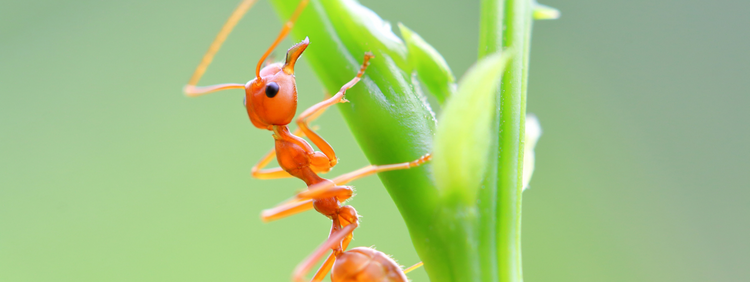Acton Pest Control: What Are Citronella Ants?

If you see small, yellowish insects around your home, you may assume they are termites and worry that you could experience significant property damage due to an infestation. There is another possibility; the insects may be citronella ants. Citronella ants do not cause damage, though they may alert you to the presence of a water leak, and pose little, if any, threat to humans. Nevertheless, it is a good idea to call pest control in Acton to confirm that they are citronella ants and not termites or carpenter ants, which can cause significant damage to wood structures.
Why Are They Called Citronella Ants?
When you crush the body of a citronella ant, it releases a citrus-like scent into the air that is similar to the aroma of a lemon. This unique characteristic is the reason for the citronella ant’s name. “Citron” is the Latin word for lemon, and citronella is an essential oil derived from the lemongrass plant which, though not related to citrus plants at all, nevertheless gives off a similar smell.
The smell can help you determine whether you have citronella ants or a more destructive insect pest, such as termites or carpenter ants. These pests do not give off any sort of smell when you crush them, as citronella ants do.
What Do Citronella Ants Look Like?
Citronella ants are also known as yellow ants, and while their bodies can be light yellow, they can also be dark yellow to light brown, sometimes with a reddish or coppery tone. Their colour is sometimes compared to honey. Measuring only about 5 mm, or one-eighth inch, in length, citronella ants are a small species, especially compared to carpenter ants, which can be up to four times as long.
What Do Citronella Ants Eat?
Citronella ants seem to feed exclusively on honeydew, a substance secreted by plant-eating insects such as aphids. In fact, it is believed that citronella ants may keep aphids in “farms” underground where they feed and tend them similar to the way that a dairy farmer raises cows. As with the dairy farmer, the workers can then collect the honeydew that the aphids produce for distribution among the entire citronella ant colony.
Under What Circumstances Would Citronella Ants Come Into Human Homes?
Citronella ants are a subterranean species. While they may make nests near your home, especially beneath a concrete slab or near the foundation, they are unlikely to nest inside. They also don’t eat human food, so it is unlikely that they would come inside to forage. The most likely scenario in which citronella ants may get into your home is when they are swarming. Swarmers are winged ants whose purpose is to mate and then establish new colonies; they are not harmful to humans, and you can remove them by sucking them up into a vacuum cleaner.
Citronella ants look particularly for moist soil in which to nest, for which reason, they are sometimes also known as “moisture ants.” If you see citronella ants in or around your home, it may mean that you have a moisture problem somewhere. Pay particular attention to wooden structures for rot or signs of other damage due to moisture. Citronella ants may try to nest in the moist wood, which could degrade it further.
Why Should You Hire Truly Nolen for Pest Control in Acton?
Our experienced technicians can confirm whether you have an infestation of citronella ants or a more dangerous pest, such as termites or carpenter ants. They can then recommend a plan for carpenter ant removal or citronella ant removal as needed. Regardless of the species, this typically requires a chemical application followed by sealing cracks to prevent more insects from getting inside. Find out more about the pest control services we offer in your area.